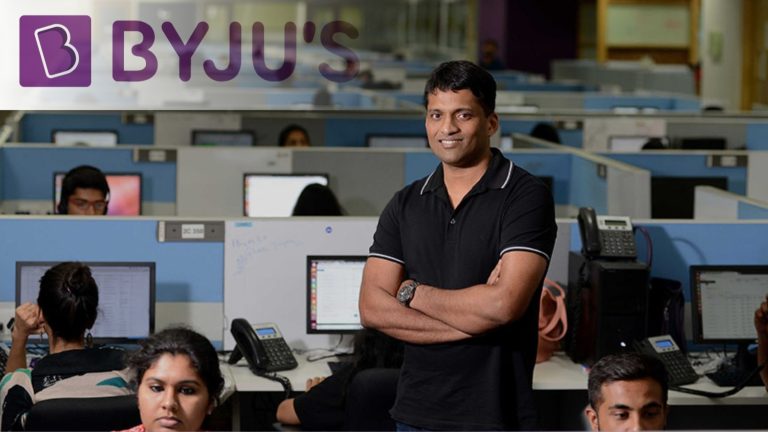(Reuters): Founded in 2011, the Bengaluru-based startup ByJu’s launched its learning app in 2015 and soon snowballed into a multibillion-dollar behemoth – and India’s leading edtech business – with members of the country’s burgeoning middle class seeking jobs and financial security in one of the world’s biggest tech hubs soon developed a toxic work culture where employees felt suffocated and tortured.
Byju’s employees say its success is built on the back of an abusive and exploitative work environment and unscrupulous sales practices that involve profiling, pursuing and pressuring potential customers from poorer backgrounds to buy its courses.
Context spoke to 26 salespeople – 18 current and eight former – who outlined harsh working conditions with excessive hours, incidents of physical and verbal abuse, and a culture in which they are encouraged to mislead clients to make sales by almost any means.
WhatsApp messages, internal emails, company contracts and audio recordings of calls and meetings reveal how some bosses at Byju’s pressure and threaten employees into working more than 72 hours a week, and do not allow them lunch breaks, time off, or even to leave the office if strict targets are not met.
Also read: For last few years, no hiring in two PSU insurance companies
But with their families’ hopes pinned on them, Byju’s staff, many of whom are first-generation college graduates or come from low-income homes, say they put up with the punishing environment over fears of losing their jobs in India’s tough labour market.
Context also interviewed 22 Byju’s clients, with many saying they had been pushed into signing up for courses, duped into taking loans, and ended up losing money with little recourse.
In response to Context’s findings, a Byju’s spokesperson said the staff who spoke out represented an “infinitesimal percentage” of its workforce, and that the company had “zero tolerance for unpleasant behaviour at the workplace”.
“We uphold the highest safe workplace standards at each of our business units,” the spokesperson said in emailed comments.
Regarding the criticism from clients, Byju’s said its operations were “centred around customer respect and satisfaction” and that its staff do not “pursue customers who are either uninterested in or unable to pay for our products”.
Pratik Makhija, a former Byju’s salesman who had two spells with the company, said he had endured “daily mental torture”.
The 27-year-old said this included his manager shouting at him, forcing him to work seven days in a row, and pitting colleagues against each other.
“You feel like you’re in a bubble or trapped at the bottom of a well, with no way to climb out and enjoy the outside world. There is no work-life balance. Zero,” said Makhija, who first quit Byju’s in January 2021 after 18 months there.
“We are treated like slaves. At what cost are they making their revenue, their valuation? By crushing us,” he added.
Makhija said he rejoined Byju’s in July because he needed the money but was suspended in August – for a month – after he complained about aggressive behaviour by his managers. He quit again in October but said he is still “haunted” by the actions of his managers, who he says shouted at and manhandled him.
“It got so bad that I had to seek professional help, and eventually got diagnosed with anxiety,” said Makhija, who is now unemployed and looking for a job. “I get terrible flashbacks.”
Bjyu’s did not respond to a request for comment on Makhija’s account.
India’s labour and IT ministries did not respond to repeated requests for comment about Context’s reporting.
While the government has raised concerns over edtech firms’ treatment of customers – such as false advertising of products – worker abuses appear to be going under the radar, advocates say.
Labour lawyers, academics and workers’ rights experts are warning that without strict oversight, employees risk bearing the brunt of unchecked exploitation as edtech startups, not only Byju’s, race to become the next big players in India’s economy.
“Currently it’s a free-for-all,” said economist K.R. Shyam Sundar, who has written widely on labour reforms in India, and is calling for regulation of the sector including a dedicated edtech policy to ensure the welfare and protection of workers.
“In this scenario, labour rights is always the first victim,” he added.
JOB INSECURITY
Reports of poor work conditions and abusive practices have emerged not just at Byju’s but across India’s edtech industry.
Context also interviewed three workers from Vedantu – two current and one former – and four at Unacademy presently, who highlighted high-pressure environments, being encouraged to mis-sell products, and having their pay cut arbitrarily.
These employees also said there is little job security.
Vedantu, which is another Bengaluru-based edtech giant, did not respond to repeated requests for comment.
A spokesperson for Unacademy, an edtech startup backed by Japan’s SoftBank, said the company strongly denied the workers’ accounts as “a factually incorrect representation of our culture” and that it was “focused on enhancing and nurturing growth of every employee”.
While labour activists are concerned about conditions across the sector, Byju’s has faced the most scrutiny in recent years.
Backed by Tiger Global – one of the world’s largest hedge funds – Byju’s was a big beneficiary of the spurt in demand for virtual learning in India during the COVID-19 pandemic.
It also attracted investment from some of the top venture capital funds and financiers – like China’s Tencent, U.S.-based Sequoia Capital and General Atlantic, and Mark Zuckerberg and his wife Priscilla Chan’s Chan-Zuckerberg Initiative – to fund its breakneck growth.
But demand started fading with the reopening of schools and global economic uncertainty, according to industry analysts.
The startup, one of the most valuable in the world at $22 billion, in September reported a loss of 45.64 billion rupees ($550.5 million) for the 2021 fiscal year, and revenue fell 3%.
As Byju’s faces a tougher business climate, more complaints have emerged about its work culture and business model.
Criticism has been rife on social media – from former staff to industry watchers – over what they call unethical practices such as aggressive selling tactics, delays in cancellation requests and a lack of refunds.
Byju’s recent unveiling of football star Lionel Messi as a brand ambassador – shortly after announcing a plan to lay off 2,500 of its 50,000-strong workforce – was widely condemned on social media platforms by former workers and industry experts.
Staff told Context they increasingly fear for their jobs, and feel pressured to work even harder as colleagues are laid off.
According to the 26 workers interviewed, most of whom spoke on the condition of anonymity due to fear of reprisals, they are often expected to work at least 12-hour shifts six days a week.
Byju’s worker contracts seen by Context do not specify the number of hours an employee has to work in a day or a week.
The Byju’s spokesperson said that no manager was encouraged or allowed to make their teams work more than a five-day week.
“In cases when an employee has to work on an extra day, it is always on a voluntary basis and with extra compensation paid for the extra effort,” said the company representative.
However, employees said they are regularly expected to work beyond 12 hours a day – sometimes for seven days a week – without any additional pay, and that they have to accept the extra hours and shifts for fear of losing their jobs.
Each state in India has its own rules to regulate wages, work hours, leave, holidays, terms of service and other work conditions for employees.
Fourteen of the Byju’s workers are based in Bengaluru, the capital of Karnataka, where regulations state that an employee must not work more than nine hours a day and 48 hours a week. Beyond that limit, they are entitled to overtime pay by law.
‘SUFFER LIKE HELL’
Byju’s offers online tuition to a wide range of clients – from the parents of pupils as young as six to adults trying to pass competitive exams for engineering and civil services.
Most employees describe work as an endless grind to meet weekly sales targets of at least 100,000 rupees, which means selling between one or four courses depending on their value.
To do so, salespeople not only spend hours on the phone each day but frequent places including schools, malls and temples to persuade people to sign up, often low-income workers – from market sellers to tuk-tuk drivers – who are not digitally savvy.
“You have to let go of your conscience and be absolutely shameless to do this job,” said a former salesperson who quit in September, speaking on condition of anonymity.
“I (was) so wracked with guilt sometimes, I could barely sleep at night,” she said, recounting times when she had barged into people’s homes, shamed them into buying a course for their children, and blocked their numbers if they asked for refunds.
Makhija said Byju’s did not train employees on how to make sales, but expected them to close deals by any means necessary.
“It doesn’t matter how you do it – do unethical things, promise fake things, make false commitments, mislead, misguide,” he said. “Do whatever you have to do to make a sale. We want revenue at the end of the day – that’s their message to us.”
On their one day off a week, Byju’s workers say they are bombarded by emails and messages from their managers, many of which were seen by Context.
In a WhatsApp group, one manager questioned attitudes among her team of salespeople and said “trust that I will make you suffer like hell under me” as she threatened to mark them as absent, cut their day’s pay and place them on performance improvement programmes (PIP) if they did not meet their targets.
“Don’t drop me any kind of message stating you people are not well … So do not think of even asking for any such kind of leave,” the manager said in a following message.
“You wanna tag HR, go ahead.”
Many employees said that failing to meet targets means they are not allowed to take lunch breaks, while five recalled how they had been physically stopped from leaving work – with managers locking their bags away or holding them by their arms.
Byju’s said it had a robust mechanism for such complaints, and that it did not set “irrational targets” for its workers.
“Managers are encouraged to look at the quality rather than quantity of work,” the spokesperson said. “In the last two years, we have doubled down on fostering an environment where employees feel physically and emotionally healthy, safe, and supported.”
All of the workers said it is nearly impossible to take any kind of leave including their entitled one sick day a month. They said they also rarely get any bank holidays, and almost never take any annual leave because requests are never approved.
One Bengaluru-based employee said her manager did not let her go to see her ill mother after she was hospitalised in Mumbai in August.
“He said: ‘You get paid to work, not to go on trips’ as if I was going on a vacation,” she said. “We are treated like animals … This job is not for the faint-hearted.”
Byju’s spokesperson said the firm’s leave and work policies were on par with the best human resources practices globally.
“Employee well-being is a top priority for us at Byju’s and we take proactive steps to ensure that all our employees strike a healthy balance in their work lives,” the representative said.
CRACKDOWN ON ORGANISING
In recent years, factions of Byju’s workers have tried to rally and unite colleagues – be it on WhatsApp groups or LinkedIn forums – to demand better work conditions.
However, they have faced stiff opposition from Byju’s.
One 30-year-old, who spoke on condition of anonymity for fear of harming his job prospects, said he was fired after he and another colleague set up two WhatsApp groups in September, urging other salespeople to unite and fight for their rights.
They demanded workplace changes such as set work hours, being fairly marked for their attendance, and an end to the arbitrary use of PIPs to discipline employees or fire them.
Nearly 1,000 salespeople joined the two WhatsApp groups, which were seen by Context. But that figure fell by more than half within weeks after managers started threatening workers if they were found to be part of “anti-organisation” groups.
In WhatsApp messages seen by Context, one manager told her sales team they could “face termination” if they did not leave the two groups in question, demanding screenshots as proof.
The former salesman and co-founder of the WhatsApp groups recalled how senior managers had flown from offices across the country to question his team values and suitability for Byju’s.
“(They) asked me to leave … for standing against them, and I had to because it was really impossible for me to take that kind of pressure,” said the employee, who was the sole bread winner of his family.
“I’m getting married (next month) and I don’t have a job,” he said over WhatsApp. “Byju’s is not a firm, it’s a jail.”
About half a dozen workers said that the HR department had turned a blind eye to their complaints, and actively discourages employees from escalating issues to upper management.
Byju’s did not respond to requests for comment on the 30-year-old’s account or questions about organising and dissent.
Manjari Singh, a human resources professor at the Indian Institute of Management in western Ahmedabad city, said “there was no easy solution” for workers trying to organise or obtain legal recourse over the abusive conditions they describe.
“(Workers) have to come together and fight, but it has to go beyond emails, social media and WhatsApp groups,” said Singh, urging Byju’s employees to take their cases to court.
Sheena Ogra, a partner at Delhi-based law firm Ahlawat & Associates with expertise in employment law, said workers often hesitated to take legal action for fear of being “blacklisted”.
“They have a fear that tomorrow, no employer may want to hire them if they take on the company, or that they may not get proper experience letters from their existing organisations,” she said. “It can be very tricky.”
MIDDLE-CLASS ASPIRATIONS
Tech and labour law experts say the edtech sector straddles a host of laws and regulations such as the IT legislation and national e-commerce standards, and avoids scrutiny in the absence of a specific policy to regulate the industry.
While the sector largely operates without regulatory scrutiny, experts fear that edtech companies could exploit the hopes and ambitions of a growing number of workers who come from humble backgrounds.
Nearly half of the Byju’s employees interviewed by Context said they came from low-income households and were the first in their families to go to university.
They said they want to provide a better life for their relatives with their education – and stressed that it is one of the main reasons they tolerate abuses at the company.
Many also feel trapped because they desperately need their monthly salary to pay off various bills and debts.
Nitesh Kumar, a former Byju’s salesman, quit last month as part of a mass resignation of at least 40 employees, saying he had been mistreated in various ways in two separate stints.
The first time, the 26-year-old said he was forced to quit by the company after he fractured his leg in a road accident.
After rejoining, Kumar said he had been subjected to 15-hour work shifts, denied lunch breaks, had his pay cut, and ordered to work when ill because he had not met his sales targets.
Byju’s did not respond to requests for comment on Kumar’s account.
He said he had initially planned to stay at the company until the end of the year in order to clear loans for his family car and his sister’s wedding.
“(But) they (Byju’s) made the working conditions so awful, so unbearable with ridiculous targets that I thought I would rather default than suffer any more of this,” said Kumar, who is now looking for another job.
“I escaped a proper cesspit … and finally feel at peace.”
Stay connected with us on social media platform for instant update click here to join our LinkedIn, Twitter & Facebook



































Add comment